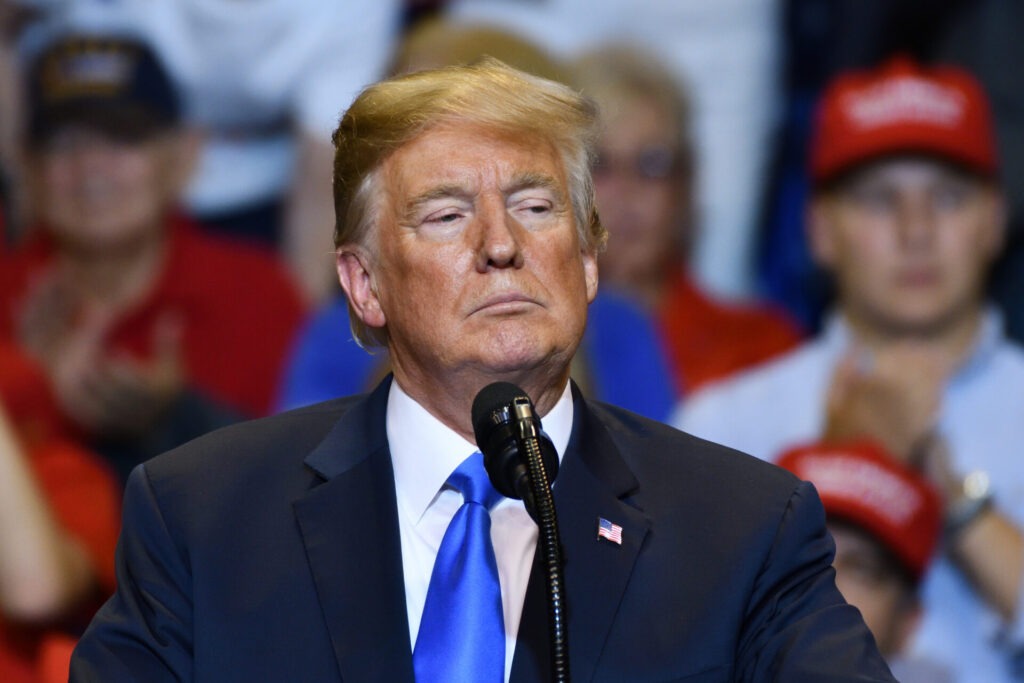The Biden administration’s recent passage of a $95 billion foreign aid package has ignited a firestorm of criticism, with detractors arguing that it neglects critical domestic issues, such as the escalating border crisis and rising crime rates, in favor of bolstering international relations. This hefty financial commitment to foreign nations like Ukraine and Israel is seen by many as a misallocation of resources that could better serve pressing American concerns.
Senator Marco Rubio (R-FL) has been a vocal critic, particularly emphasizing how the bill neglects urgent border security needs amid a significant increase in migrant crossings. Rubio describes the situation as “legislative blackmail,” accusing the administration of forcing lawmakers to choose between funding international allies and addressing the national security and humanitarian challenges at the U.S.-Mexico border. His sentiments reflect a growing frustration among some segments of the American public and lawmakers who feel that internal issues should be the priority.
Rubio added, “But if I want to help Israel, if I want to help Taiwan, if I want to help Ukraine, if I want to ban TikTok, I have to vote for spending billions of dollars to give to charity groups so they can fly people around the country here and put them up in hotel rooms, or so they can help resettlement in another country?”
The border crisis has been marked by a surge in illegal crossings, which has in turn been linked to increased crime rates in border states. Communities near the border are reporting higher instances of drug trafficking, human smuggling, and violent crimes, exacerbating local law enforcement challenges and fueling community safety concerns. Critics of the aid package argue that the funds directed overseas could have significantly bolstered border security infrastructure, increased funding for law enforcement, and enhanced surveillance and patrol capabilities, thereby helping to mitigate these criminal activities.
Moreover, the economic implications of unchecked immigration are also a point of contention. Local resources are stretched thin, public services are under pressure, and job markets are impacted, which in turn affects the socio-economic stability of American border communities. Opponents of the foreign aid package feel that these domestic issues are being sidelined in favor of international interests, risking the welfare of American citizens.
Supporters of the bill, including Senate Minority Leader Mitch McConnell, argue that maintaining strong international alliances through aid is vital for global stability and, by extension, U.S. security. They claim that such support indirectly benefits the U.S. by maintaining the balance of power and supporting global peace, which they believe contributes to national security.
However, the juxtaposition of substantial foreign aid against the backdrop of a domestic crisis paints a troubling picture of the current administration’s priorities. This has led to an intensified debate about the role of U.S. foreign policy and whether it should come at the expense of addressing domestic issues first. Critics argue that the Biden administration’s approach displays a disconnect from the immediate needs and safety concerns of its citizens, particularly those directly impacted by the border crisis.
As President Biden endorses this package and the funds begin to flow overseas, the debate continues to rage. The administration faces a growing challenge to balance its international obligations with its responsibility to safeguard and improve the lives of its citizens. With each passing day, the outcry over perceived neglect grows louder, potentially shaping voter sentiment as the nation edges closer to upcoming electoral milestones. The ongoing controversy surrounding the $95 billion foreign aid package underscores a critical question: Is the administration out of touch with the real needs of Americans, or is it strategically navigating complex global dynamics that critics might not fully appreciate? The resolution to this debate will be crucial in determining the political and social trajectory of Biden’s presidency.




